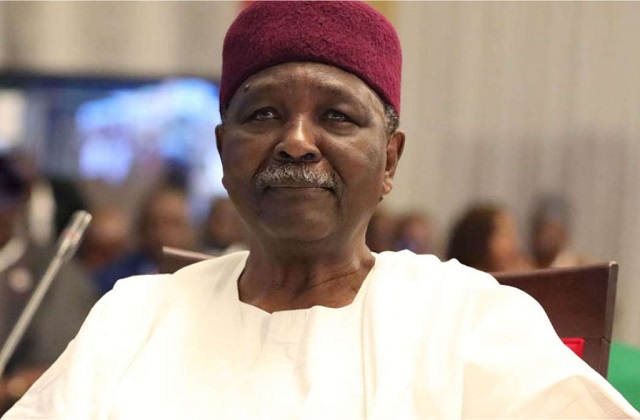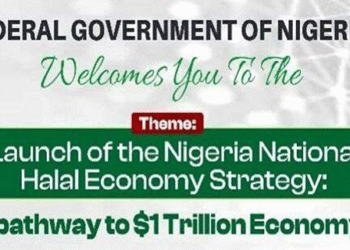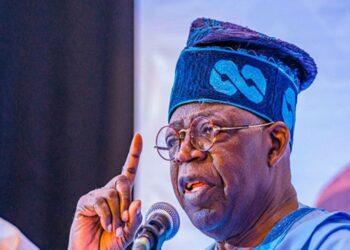By Sylvester I. Onwudiwe
“You cannot whitewash a genocide with selective memory.”
That is the irrefutable truth Nigeria must confront following General Yakubu Gowon’s recent attempt to sanitize one of the most harrowing chapters in the nation’s history.
In a televised interview, the 91-year-old former Head of State astonishingly claimed that the Biafran War was not directed against the Igbo people and went so far as to declare that the conflict fostered national unity.
These remarks were not merely a mischaracterization—they were an egregious distortion, a final betrayal from a man under whose command a generation of innocents was consigned to starvation and silence.
To the millions who endured the war’s horrors, and the many more who carry its trauma in their bloodline, Gowon’s assertions were not only tone-deaf but deeply offensive.
They seek to erase the pogroms, the humanitarian blockade, the deliberate economic disinheritance, and the sustained marginalization of a people who have never fully re-entered the national fold. It is a travesty of memory. A desecration of truth. A final insult carved into the bones of those who died with their eyes open, waiting for a nation that never came.
Before a single shot was fired, the rivers of blood had already begun to flow. Between May and September 1966, tens of thousands of Igbos were systematically massacred in Northern Nigeria. These atrocities were not spontaneous. They were orchestrated.
Civilians were hunted down in marketplaces, dragged from their homes, butchered in military barracks. Pregnant women were mutilated. Infants beheaded. Entire families were incinerated in buses and train cars.
These were not the chaotic by-products of civil unrest—they were cold, calculated pogroms executed with impunity. By the time Biafra declared independence in 1967, over a million Igbos had fled the North in terror. Their sole offense: their ethnicity.
The war that ensued was not conventional in any sense. It was not a battle between equals. It was a siege—strategic, deliberate, and genocidal in method. In retaliation for Biafra’s secession, Gowon’s regime imposed a total economic and humanitarian blockade, severing food, medicine, and aid to civilian populations.
International relief agencies, including the Red Cross and Caritas, pleaded for access. They were rebuffed. The consequence? A slow, excruciating death for over a million children—tiny bodies bloated by kwashiorkor, bones protruding from paper-thin skin, their cries extinguished by a deafening, imposed silence. And yet, Gowon now dares to invoke the word “unity.”
At the war’s conclusion in 1970, Gowon offered the hollow slogan: “No victor, no vanquished.” But what followed was not reconciliation—it was retribution. Survivors were met with economic annihilation. Every Igbo person, regardless of prior wealth, was handed a paltry £20 from their bank accounts, regardless of how many thousands or millions they once held.
Lifelong savings were erased in an instant. Properties in cities like Port Harcourt were confiscated under the so-called “Abandoned Property” decree. Eastern Nigeria was surgically fragmented into weaker states, surgically cutting the Igbo off from vital oil reserves and political leverage. This was not nation-building. It was systematic subjugation.
And now, the very architect of that devastation seeks to exonerate himself through revisionist nostalgia? To suggest that the war was not waged against the Igbo? To portray that national tragedy as a unifying triumph? It is intellectual fraud. Historical malpractice. A calculated act of erasure.
If the war truly unified Nigeria, then where are the dividends of that unity? Why has no Igbo ascended to the presidency in over half a century? Why do Igbo states remain perpetually underfunded, militarily sidelined, and strategically excluded from critical infrastructure projects? Why does the history of Biafra remain redacted from school curricula, treated as an unspeakable aberration rather than a defining national trauma?
Gowon’s narrative is not only dishonest—it is violent. It desecrates the graves of the dead. It insults the intelligence of the living. And it prolongs the open wound Nigeria has refused to stitch. If there was ever a time to confront the ghosts of Biafra, it is now. If unity was the goal, then we must interrogate the methods used to achieve it. Starvation is not a strategy of reconciliation. Blockades are not the tools of peace.
The bones of the children who died in silence still lie beneath our soil. Their story has not been erased. Their memory is our witness. The Middle Belt—the region from which Gowon hails, once seen as loyal to his cause—is today ravaged by banditry, displacement, and state neglect.
The fire he once set in the East has not gone out—it has merely shifted direction. What began as injustice against the Igbos has metastasized into a national malaise.
History cannot be manipulated. It demands reckoning, not whitewashing. And that reckoning begins with truth.
To General Gowon: It is not too late to speak that truth. It is not too late to offer an apology, not to win applause, but to restore your conscience and attempt a fragment of healing. But the window is closing. And soon, it may be too late to be heard.
© Igbofacts.com. Reproducing this article without permission is prohibited. All rights reserved. To respond or contribute, email: editor@igbofacts.com










